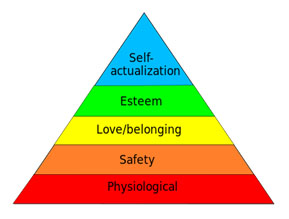 Which one is stronger, more powerful, and should be the word of choice between these two every time, when making a request?
Which one is stronger, more powerful, and should be the word of choice between these two every time, when making a request?
Well, we use ‘want’ all the time, don’t we?
“I want you to do X”,
“I want to see some changes around here!”,
“I want this taken care of right away”,
“I really want a new job”,
“I want…” etc, etc, and on it goes.
Sounds like it’s all about me and my wants, doesn’t it? That’s because it IS all about me, when I declare “I want” – a very self-centered, childish lament. Want comes from that young toddler place where we all once were (and probably long to go back to), when the world centered around us and our needs, or at least in our small minds we were the center of the universe. And we cried, “But I WANT it (that shiny new toy)!!” or “I WANT to [do that denied behavior]!” As if just wanting anything could make it happen.
In the adult world it’s still true; we somehow think that “want” has a special pull, and just asking for it will hopefully (magically) make it happen! Think again. Our wants may or may not hold sway with the other person.
The alternate word to ‘want’ that does have pull is ‘need’. How much more powerful are the same utterances, simply changing out ‘want’ with ‘need’:
“I need you to do X”,
“I need to see some changes around here!,
“I need this taken care of right away”,
“I really need a new job.”
Where does ‘need’ gain its power from? For that answer, look to Maslow’s hierarchy theory on motivation. In a nutshell, his theory is that motivations move through a tiered pattern (as pictured above) and all lower tiered motivations must be met to reach the higher levels.
At the very base level are physiological needs: food, water, shelter, sleep, breathing, etc. When the basic drives are lacking, there is no motivation to move up the chain to the higher levels. These basic drives can be thought of as base survival needs.
When you say, “I need you to help me out tomorrow” you are appealing at this very basic level, which most people understand and are more apt to comply with (we are social creatures and care about the needs of others).
“I want you to help me out tomorrow” does not have the same appeal – and I probably want to spend my time tomorrow doing something else!
Don’t forget to make the word switch in your self-talk too… when you catch the little voice in your head saying “I want to exercise”
“I want to eat more cake”
“I want to stop being late”
“I want to [whatever]” should change to
“I need to exercise (my future health depends on it)”
“I need to eat more cake (stop! really? Is that really true?)”
“I need to stop being late (because of the repercussions my lateness inflicts on others)” as much more powerful to self-motivate.
Language is a huge factor in behavior. Having language tools leads to greater and easier success. Other word choices will be covered in future posts.
